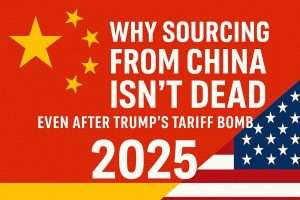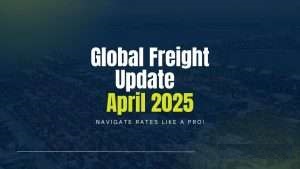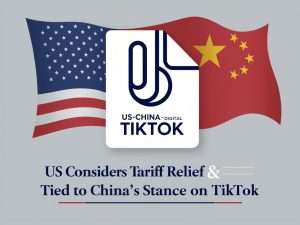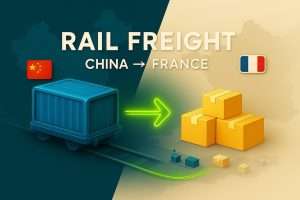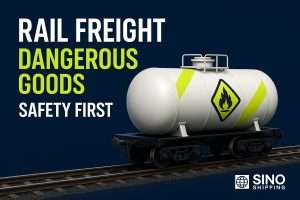If you’re importing goods, you’ve probably seen CIF, FOB, DDP, EXW everywhere. But what do they actually mean? And more importantly, which one is the best for your business?
👉 The goal here is simple: Help you pick the right Incoterm to avoid hidden costs, reduce risks, and optimize logistics.
CIF (Cost, Insurance, and Freight): The All-Inclusive Option
CIF, or Cost, Insurance, and Freight, is an Incoterm that simplifies international shipping for buyers by placing most of the responsibility on the seller. This means the seller arranges transportation, covers the freight costs, and even provides insurance for the goods while they are in transit. However, while CIF may seem like the easiest option, it also comes with certain limitations.
💡 Who is CIF for?
CIF is best suited for:
✔️ Buyers who prefer a hands-off approach – If you don’t want to deal with shipping logistics, CIF allows you to let the seller handle everything until the goods reach the destination port.
✔️ Importers who want predictable costs – Since the seller includes transportation and insurance in the price, you get a clear idea of the total cost upfront.
✔️ Businesses that prioritize security – CIF includes insurance, which protects your shipment in case of loss or damage during transit.
🔍 How It Works:
- The seller arranges and pays for shipping to the destination port.
- The seller also provides insurance, covering the goods while they are in transit.
- Once the goods are loaded onto the vessel, the risk transfers to the buyer.
- The buyer is responsible for customs clearance, import duties, and transportation from the destination port to the final location.
⚠️ Important Note: Even though the seller arranges the freight and insurance, they choose the service provider—meaning the buyer has little control over transit times, carrier selection, or insurance quality.
✅ Pros of CIF:
✔️ Less hassle – The seller takes care of shipping arrangements and insurance, saving you time and effort.
✔️ Predictable shipping costs – Since the shipping and insurance are included in the price, you won’t have to negotiate separate freight contracts.
✔️ Basic insurance coverage included – This provides some protection against loss or damage during transit.
❌ Cons of CIF:
⚠️ Limited control over shipping – Since the seller selects the carrier and freight terms, the buyer may not get the best rates or the most efficient route.
⚠️ Higher costs – CIF tends to be more expensive than FOB (Free on Board) because the seller may add a markup to the shipping and insurance costs.
⚠️ Risk transfers early – Even though the seller arranges the shipping, the buyer is responsible for any damage or loss once the goods are on the ship.
When to Choose CIF
🔹 You’re new to importing and want a simple process.
🔹 You prefer the seller to handle logistics.
🔹 You’re shipping to a destination where you trust the seller’s freight arrangements.
When NOT to Choose CIF
❌ You want full control over the shipping process.
❌ You’re looking for the lowest-cost option.
❌ You need more comprehensive insurance coverage.
CIF can be a convenient option for importers who don’t want to manage freight and insurance themselves. However, it comes with higher costs and less control over the shipping process. If you prefer flexibility and cost efficiency, FOB might be a better alternative.
FOB (Free on Board): The Most Popular Choice for Importers
FOB, or Free on Board, is one of the most widely used Incoterms in international trade. It offers a great balance between cost efficiency and control, making it the preferred option for experienced importers. Under FOB, the seller is responsible for delivering the goods to the port of departure and loading them onto the ship. From that moment, the buyer takes full responsibility for freight, insurance, and customs clearance.
This Incoterm is particularly advantageous for businesses that want to optimize their logistics and shipping costs by choosing their own freight forwarder.
💡 Who is FOB for?
FOB is ideal for:
✔️ Buyers who want control over their shipping process – You get to choose your own freight forwarder, negotiate rates, and manage transit times.
✔️ Importers who ship regularly – If you’re used to handling logistics, FOB allows you to save money and avoid unnecessary markups from the seller.
✔️ Businesses looking for cost efficiency – FOB is often cheaper than CIF because you’re not paying the seller’s additional charges for arranging freight and insurance.
🔍 How It Works:
- The seller handles all local costs up to the port of departure.
- The seller also ensures the goods are loaded onto the ship.
- Once the goods are on board, the risk and responsibility transfer to the buyer.
- The buyer arranges international freight, insurance, import duties, and delivery to the final destination.
⚠️ Important Note: Since risk transfers once the goods are on the ship, the buyer is responsible for any damages or losses from that point onward. That’s why arranging proper insurance is crucial.
✅ Pros of FOB:
✔️ More control over shipping – Buyers can choose the most cost-effective and reliable freight forwarder.
✔️ Lower costs – FOB is generally cheaper than CIF because the buyer directly handles the shipping, avoiding the seller’s markups.
✔️ Better flexibility – Importers can select the best shipping routes and services based on their specific needs.
❌ Cons of FOB:
⚠️ Requires logistics knowledge – The buyer must understand how to handle freight arrangements, customs clearance, and delivery.
⚠️ Insurance is the buyer’s responsibility – Unlike CIF, which includes insurance, FOB requires the buyer to arrange coverage separately.
⚠️ Potential extra costs at the port – If there are unexpected port fees or delays, the buyer is responsible for handling them.
When to Choose FOB
🔹 You want to control shipping costs and logistics.
🔹 You have experience in international trade and freight forwarding.
🔹 You work with trusted freight partners and prefer to negotiate better shipping rates.
When NOT to Choose FOB
❌ You’re new to importing and don’t want to manage logistics.
❌ You prefer an all-inclusive shipping solution with insurance included (CIF or DDP might be better).
❌ You’re dealing with a seller who has better shipping rates than you can negotiate.
FOB is the best option for importers who want control and cost efficiency. It allows buyers to select their preferred freight forwarder, negotiate better shipping rates, and manage their supply chain more effectively. However, it does require some knowledge of logistics, so if you’re a beginner, CIF or DDP may be a safer choice.
If you’re comfortable managing shipping, FOB is often the smartest financial decision for long-term cost savings.
DDP (Delivered Duty Paid): The Hassle-Free Option
DDP, or Delivered Duty Paid, is the most convenient Incoterm for buyers, as it places all the responsibility on the seller. From arranging international shipping to handling customs clearance and paying import duties, the seller takes care of everything.
For businesses that don’t want to deal with logistics, customs, or taxes, DDP is the easiest solution. The goods arrive directly at the buyer’s location, fully cleared and ready to use. However, this convenience comes at a cost, as DDP is usually the most expensive Incoterm due to the seller covering all expenses.
💡 Who is DDP for?
DDP is ideal for:
✔️ Buyers who want a stress-free experience – Everything from shipping to customs clearance is handled by the seller.
✔️ Businesses new to importing – No need to navigate complex international shipping regulations or customs procedures.
✔️ Companies that want predictable costs – Since duties, taxes, and shipping fees are included in the price, there are no surprise expenses.
🔍 How It Works:
- The seller is responsible for all shipping, insurance, customs clearance, and import duties.
- The goods are delivered directly to the buyer’s location, fully cleared and duty-paid.
- The buyer receives the shipment with zero additional costs or paperwork.
⚠️ Important Note: While DDP is convenient, some countries have restrictions on sellers paying import duties. In such cases, buyers may still have to handle customs procedures.
✅ Pros of DDP:
✔️ No logistics worries – The seller manages the entire process, so the buyer doesn’t have to deal with shipping, customs, or taxes.
✔️ No hidden customs fees – All import duties and taxes are included, avoiding unexpected costs.
✔️ Seamless delivery – Goods arrive at the buyer’s final destination without delays or additional handling.
❌ Cons of DDP:
⚠️ Most expensive option – Since the seller takes care of everything, the total cost is typically higher.
⚠️ Less transparency on costs – Buyers don’t always know how much was paid for shipping, customs, and duties, as the seller sets the price.
⚠️ Potential restrictions – Some countries don’t allow sellers to prepay duties, which could cause unexpected complications.
When to Choose DDP
🔹 You want a hassle-free buying experience with no extra work.
🔹 You’re new to importing and don’t want to deal with logistics.
🔹 You need the goods delivered directly to your final destination, ready to use.
When NOT to Choose DDP
❌ You want to control shipping and customs costs.
❌ You have experience in importing and can handle logistics yourself.
❌ Your country has restrictions on DDP, making it impractical.
DDP is the easiest and most stress-free Incoterm, making it perfect for first-time importers or businesses that want a smooth delivery process. However, it comes at a higher cost, and buyers have less visibility into shipping and customs expenses.
If you prioritize convenience over cost, DDP is the best option. If you’re looking for a more cost-effective approach, FOB or CIF might be better choices.
EXW (Ex Works): Maximum Control, Maximum Responsibility
EXW, or Ex Works, is an Incoterm that gives buyers the greatest level of control over their shipping process. Under EXW, the seller’s only responsibility is to make the goods available at their warehouse or factory. From that point onward, the buyer handles everything, including transportation, export and import customs, insurance, and delivery to the final destination.
This Incoterm is often the cheapest option but also the most complex, as it requires buyers to coordinate multiple logistics steps.
💡 Who is EXW for?
EXW is ideal for:
✔️ Buyers with strong logistics experience – Since the buyer manages the entire process, this option works best for those who have an established supply chain.
✔️ Businesses looking for the lowest possible costs – EXW allows buyers to negotiate shipping rates directly, avoiding seller markups.
✔️ Companies that want full control over transport – If you have trusted freight forwarders and prefer to manage every step of the shipping process, EXW offers the most flexibility.
🔍 How It Works:
- The seller prepares the goods at their warehouse or factory.
- The buyer is responsible for picking up the goods and handling all transportation.
- The buyer arranges export documentation, international shipping, import customs clearance, and final delivery.
- The buyer assumes all risk and costs from the moment the goods leave the seller’s premises.
⚠️ Important Note: Since the seller is not required to load the goods onto a truck, buyers should clarify in advance whether assistance will be provided.
✅ Pros of EXW:
✔️ Lowest costs – Buyers can find the most competitive shipping rates and avoid the seller’s additional fees.
✔️ Full flexibility and control – You decide the best shipping method, transit time, and insurance coverage.
✔️ Best for experienced importers – If you have a strong logistics network, EXW allows you to optimize your supply chain.
❌ Cons of EXW:
⚠️ Risky for inexperienced buyers – If you’re unfamiliar with international shipping, customs regulations, or freight logistics, EXW can be overwhelming.
⚠️ Multiple steps to manage – Unlike CIF or DDP, where the seller handles most of the process, EXW requires buyers to coordinate pickup, export clearance, shipping, and import duties.
⚠️ Potential extra costs – If buyers underestimate logistics expenses, EXW can end up being more costly than FOB or CIF.
When to Choose EXW
🔹 You have experience managing international logistics.
🔹 You want to reduce costs and negotiate your own shipping rates.
🔹 You have a trusted freight forwarder who can handle the process efficiently.
When NOT to Choose EXW
❌ You’re new to importing and don’t have logistics experience.
❌ You want a simple, hassle-free shipping process (CIF or DDP might be better).
❌ Your supplier is in a country with strict export regulations that could delay your shipment.
EXW is the most cost-effective Incoterm but also the most demanding in terms of logistics expertise. It works best for experienced buyers who have a solid freight network and want full control over the shipping process. However, if you’re new to importing or prefer a simpler process, FOB, CIF, or DDP may be better choices.
If you’re confident in your ability to handle international logistics, EXW can offer significant cost savings and greater flexibility in managing your supply chain.
CIF vs FOB vs DDP vs EXW: Side-by-Side Comparison
Choosing the right Incoterm depends on how much control, cost efficiency, and responsibility you’re willing to take on. Below is a quick comparison of CIF, FOB, DDP, and EXW to help you decide which option is best for your business.
| Criteria | CIF ✅ | FOB ✅ | DDP ✅ | EXW ✅ |
|---|---|---|---|---|
| Who arranges shipping? | Seller | Buyer | Seller | Buyer |
| Who pays for insurance? | Seller | Buyer | Seller | Buyer |
| Who handles customs clearance? | Buyer | Buyer | Seller | Buyer |
| When does risk transfer? | Port of departure | On the ship | Final delivery | Seller’s warehouse |
| Best for… | Simplicity | Cost control | Worry-free delivery | Lowest cost |
How to Choose the Best Incoterm for Your Business
Selecting the right Incoterm depends on your experience, logistics capabilities, and cost priorities. Here’s a quick guide to help you decide:
👉 Are you new to importing? 🔹 DDP – The easiest, most hassle-free option where the seller handles everything.
👉 Want to cut costs? 🔹 FOB or EXW – FOB is better if you have some logistics experience and want to manage shipping costs, while EXW is for those with full logistics control.
👉 Prefer a simple option with insurance included? 🔹 CIF – A good middle-ground if you want the seller to handle shipping and insurance but are okay with managing customs.
👉 Experienced importer with logistics in place? 🔹 EXW – Gives you full control over costs, shipping, and customs, but requires strong logistics expertise.
💡 Final Tip: The best Incoterm depends on your level of experience, order volume, and how much control you want over the shipping process. If you’re just starting, go for DDP or CIF. If you’re confident in handling logistics, FOB or EXW will save you money in the long run.
Frequently Asked Questions (FAQ) on CIF, FOB, DDP & EXW
What is the safest Incoterm for buyers?
DDP (Delivered Duty Paid) is the safest for buyers since the seller handles everything—shipping, customs clearance, and import duties—until the goods are delivered to the buyer's location.
Which Incoterm is the cheapest?
EXW (Ex Works) is usually the cheapest because the buyer handles all logistics, avoiding seller markups on shipping and insurance. However, it requires logistics experience.
CIF vs. FOB: Which one is better for importers?
CIF (Cost, Insurance, and Freight) is better if you want a simpler process with shipping and insurance included. FOB (Free on Board) is better if you want more control over shipping costs and prefer to use your own freight forwarder.
Why is FOB preferred by experienced importers?
FOB allows importers to choose their own shipping provider, negotiate better rates, and avoid the seller’s markup on freight and insurance.
Is DDP always the best choice for beginners?
Yes, in most cases, because the seller takes care of shipping, insurance, customs clearance, and duties, making it a hassle-free option. However, DDP is often the most expensive option, so it may not be ideal for cost-sensitive buyers.
Can I negotiate Incoterms with my supplier?
Yes, many suppliers default to EXW or FOB, but you can negotiate CIF, DDP, or any other term that suits your business needs.
Which Incoterm should I use if I want full control over my shipping?
EXW (Ex Works) gives you maximum control over the entire shipping process, but you must handle all logistics, insurance, and customs clearance.
Which Incoterm is best for large-volume shipments?
FOB is generally the best option for bulk shipments because it allows buyers to negotiate lower freight costs with their preferred carrier.



